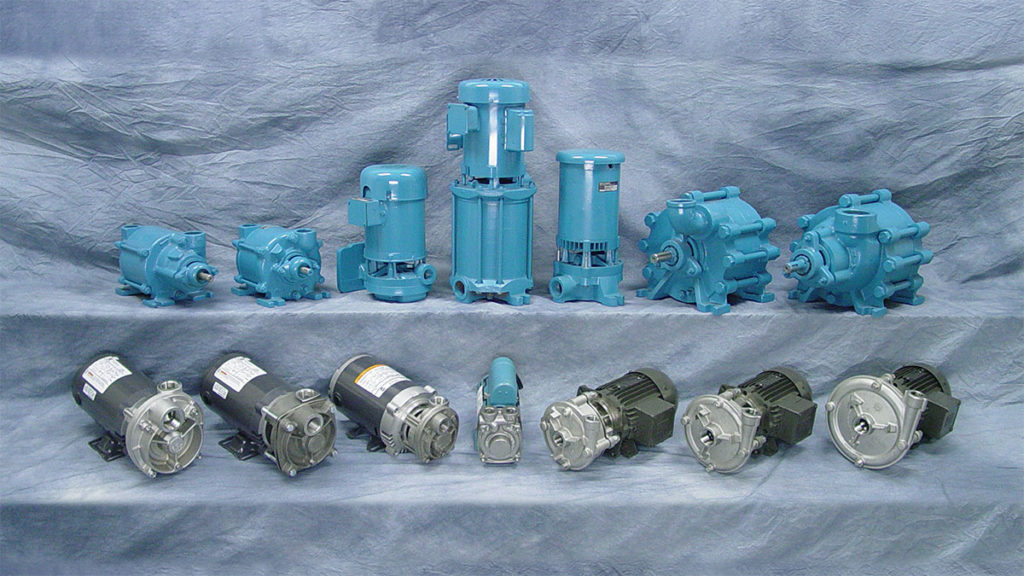Week 1 – High Pressure ability: Why Regenerative Turbine Pumps Outperform
Regenerative turbine pumps stand out because of their ability to generate high pressure without needing large flow rates. This unique ability makes them indispensable in various industries where precision and pressure are critical. But how exactly do these pumps work, and why are they so effective?
How Centrifugal and Regenerative Turbine Pumps Differ
Let’s first understand the differences between centrifugal pumps and regenerative turbine pumps. The comparison highlights why the latter is so effective for high-pressure applications.
Centrifugal pumps are designed to create flow. The impeller spins at high speed. It flings the fluid from the center to the outer edge of the volute using centrifugal force. Hence the name. While this process works well for creating high flow rates, it does not lend itself well to high pressure. Even at optimal operating conditions, centrifugal pumps struggle to generate significant pressure increases. This limitation can affect many specialized applications.
In contrast, regenerative turbine pumps focus on pressure generation. Instead of relying on the fluid being pushed outward by centrifugal force, the fluid enters at the outer diameter of the impeller. The impeller vanes repeatedly “regenerate” the energy of the fluid by circulating it around the pump’s water channel. This continual “recirculating” effect gives the regenerative turbine pump its unique ability. It can generate much higher pressures compared to centrifugal pumps, even with low flow rates. The process is akin to a skier gaining momentum by circling down a slope rather than taking a straight line.
Precision Pressure Without High Flow
A key advantage of regenerative turbine pumps is their ability to achieve high pressure without creating a large flow. For example, MTH Pumps’ regenerative turbine pumps can generate pressures as high as 1,000 PSI. They can produce flow rates as low as 0.5 gallons per minute (GPM). This flexibility allows them to handle applications that demand precision, like dosing, pressure testing, and fuel injection. At the same time, they can scale up to flow rates of 150 GPM. This makes them versatile across a range of operations.
This performance is achieved with compact, close-coupled units. It can also be achieved with multi-stage flex-coupled designs. These designs allow for both space efficiency and adaptability to high-pressure systems. Their pressure-handling ability makes them ideal for industries like chemical processing, boiler feed, and hydraulic systems. In these industries, pressure control is essential for performance and safety.

MTH Pumps Standard Products
Applications That Rely on High Pressure
One of the main advantages of regenerative turbine pumps is their effectiveness in specialized applications:
- Boiler Feed Systems: Maintaining consistent high pressure in boiler systems is crucial for safe operation. Regenerative turbine pumps excel in this task, ensuring reliable feed-water delivery.
- Cooling Systems: In closed-loop cooling systems, precise pressure control is necessary. This prevents system damage, and regenerative turbine pumps offer that.
- Fuel Injection and Chemical Dosing: These pumps can handle small flow rates while generating high pressure. This makes them ideal for precision dosing. They are used in both automotive and industrial systems.
These pumps offer a compact, efficient solution for high-pressure applications without the need for complex, over-sized systems. They not only improve performance but also help reduce maintenance costs. This is why many engineers and operators prefer regenerative turbine pumps for critical operations.

